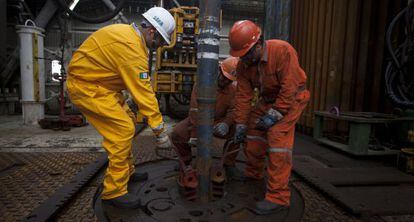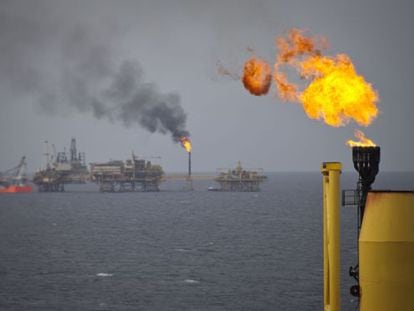Rising fuel thefts spark gasoline shortages in Mexico
Pemex officials believe that last year around 27,000 barrels of oil were stolen every day


Gasoline distributors in Mexico have complained about serious shortages in central and northern areas over the past two weeks as growing fuel-theft problems leave pumps dry at filling stations around the nation.
Petróleos Mexicanos (Pemex), which has a monopoly on supplies, has acknowledged that the shortages are due to the rise in illegal tapping of energy pipelines.
In 2014, the state oil company reported around $1.159 billion in losses as a result of thefts at pipelines that carry gasoline, diesel or crude oil. The year before, Pemex reported losing $545 million after it detected 2,800 spots where pipelines had been tapped. Last year, there were 4,000 such sites.
The stolen gasoline is sold at lower prices to small communities or clandestine fuel stations
Pemex officials believe that last year around 27,000 barrels of oil were stolen each day.
Most of the thefts take place in areas near refineries where pipelines are perforated, without any safety precautions being taken, to siphon off fuel that is then pumped into waiting tanker trucks. The gasoline is then sold at lower prices to small communities or clandestine fuel stations.
The practice has also led to environmental accidents, as well as large fires in some cities.
Fuel thefts
2014
- $1.59 billion in losses for Mexico
- 4,000 illegal taps at energy pipelines
2013
- $546 million in losses
- 2,800 illegal taps
2012
- $497 million in losses
- 1,774 illegal taps
In north Mexico, where the majority of the thefts have occurred, criminal organizations are behind the stealing and reselling of state-owned fuel.
Pemex blames the gasoline shortages of the past few weeks on the illegal tapping that occurred at the pipeline that connects the Minatitlán refinery in Veracruz with the center of the country, and on the network that connects Salamanca, Guanajuato, with Guadalajara in the state of Jalisco.
When detected, officials closed the pipelines to repair them and began transporting fuel to the affected cities by vehicle, the oil company explained in a statement.
Meanwhile, the gasoline sector is awaiting the changes that will take place as a result of President Enrique Peña Nieto’s energy reforms, which will open Pemex to private investment. This year, the government introduced a maximum price on fuel that will eventually be lifted when prices are floated on the open market.
At the same time, Pemex wants to import around 100,000 barrels of oil a day from the United States to boost gasoline and diesel production.
More information











































